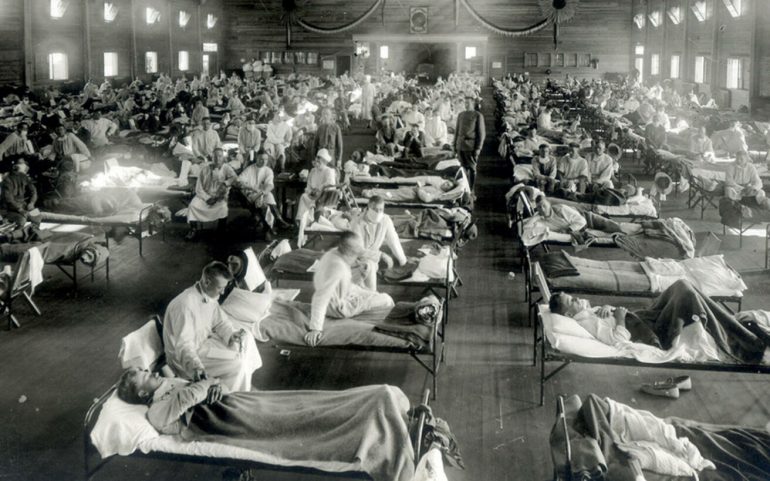The planet has experienced a series of deadly epidemics, which have turned into global pandemics that have claimed the lives of hundreds of millions of people, wiping out almost entire areas from the map.
From the typhoid fever of 430 BC. which went down in history as the "Plague of Athens" and cost the lives of 2/3 of the inhabitants of Athens. In «Black PlagueOf the 14th century that "harvested" over 75 million people worldwide, up to the current epidemic of the new coronavirus from China which in the first month of its outbreak (s.s. appeared for the first time on 14/1/2020) had left behind more than 1000 dead and 40.000 to have fallen ill.
102 years ago, in 1918, humanity faced one of the greatest pandemics that could wipe out even entire countries. The deadly course of her virus "Spanish Flu", As it was named, was not recorded by the European press in order not to affect the morale of the citizens because of the Great War (1914-18).
The landscape remained cloudy, leaving citizens stranded on its spread and its victims. flu. An exception was the detailed recording of the disease in neutral Spain. Hence its name.
How a virus came to kill more people than World War I.
Any kind of infrastructure has been virtually dismantled after the catastrophic passage of "Great War». An invisible enemy comes to finish the already collapsed people.

Ο influenza virus remains one extremely difficult opponent for doctors. It changes, changes, adapts, counterattacks and refuses to surrender and die. Instead, as a metric of deception, he disguises himself as a simple cold and kills when he gets the chance.
In 1918, somewhere in East Asia, the first people died of the flu. In a short time, the first case in Europe was reported, which was an English soldier coming from a service in France. As time went on the number of victims increased. And the more the army moved, the more the virus spread, without even knowing exactly what was happening.
The omerta of silence was broken by the Iberians who were the first to talk about the virus informing the population about what was coming. Without having in mind the full picture of the pandemic that was just around the corner.
About 1/3 of the world's population has been infected with the virus in history, with official figures showing 21.640.000 deaths, while unofficial sources say more than 50 million people have been infected.
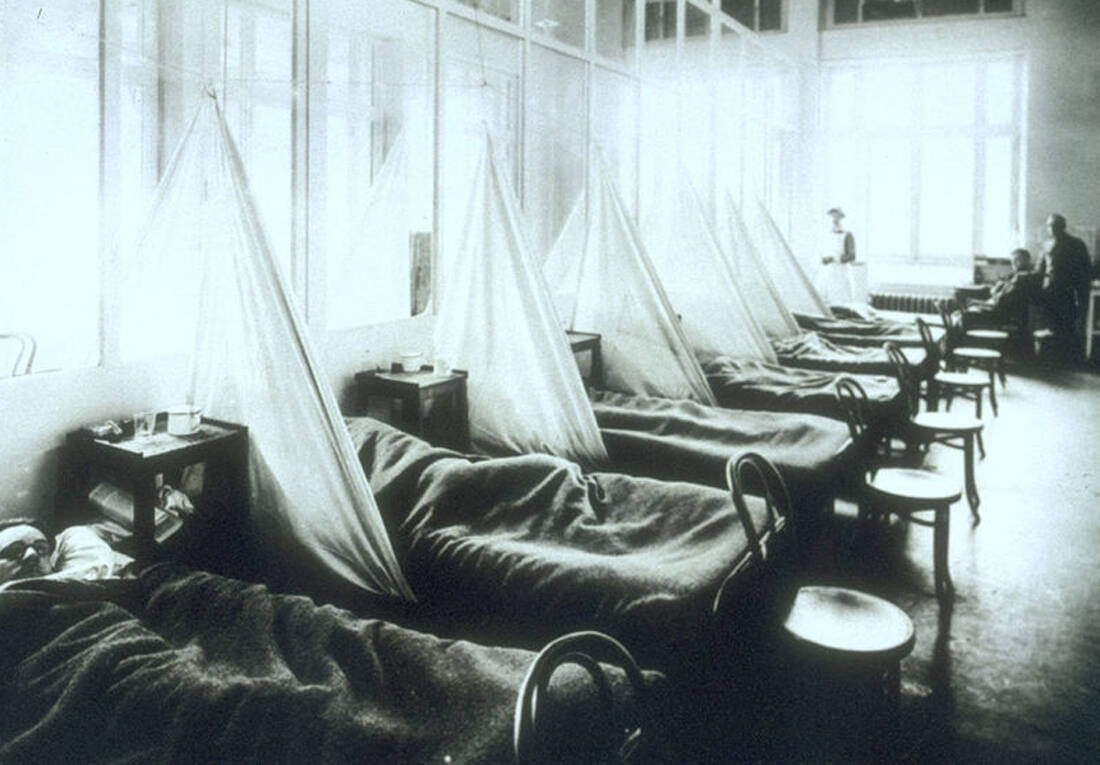
The first record of Influenza in Greece
Health authorities have been trying to cope with the virus in a number of ways. Gargling, sharp suction cups, antiseptic inhalations, regular change of underwear and regular cleaning of the hands were some of the doctors' advice. These methods were used by doctors in order for the world to face one of the biggest pandemics that humanity has experienced.
In the summer of 1918 the first reports in the Greek press about the Spanish Influenza were made. The newspaper "Ora" writes on June 14: "If one listens to the fellow citizens, one will assume that the famous Spanish epidemic broke out in Iostefanon Asty. Every fellow citizen, as soon as he feels his nostrils moistened by a light sore throat or his head aches a little, is flattered to believe that he has acquired this curious epidemic… It is nevertheless imperative in our strange time to see this too. Epidemic of fashion ".
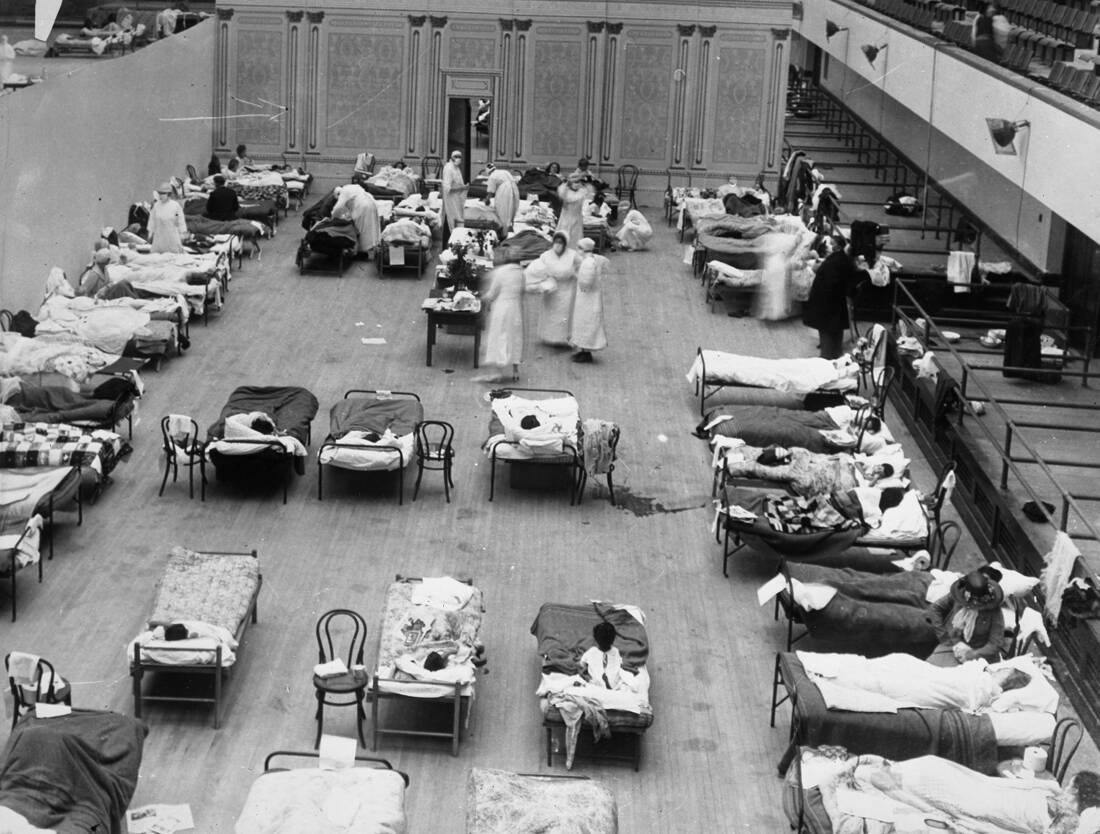
The "Acropolis" in turn talks about: "From Spain we expect another flu more serious than the one we know, the flu that now plagues the Spanish army. Doctors and pharmacists rub their hands. But also the butchers and the greengrocers, etc. "
The bad mantas are not long in coming. On July 31, a fatal case was reported in Athens. The second wave of the flu, the one that started in August and peaked in October, the month with the most victims in the world, is the one that will hit our country seriously.
The horror telegrams
October 4: The first reports are made with general prevention instructions.
October 8: Cases in Trikala, "Argolidokorinthian, Achaiolidia and Etoloakarnanian". Schools are closing in Western Macedonia, Trikala and Patras following an order from the Ministry of Education. Although there is no reporting in the press about the flu in Athens, the daily deaths - which are carefully recorded along with the cause next to weddings - double.
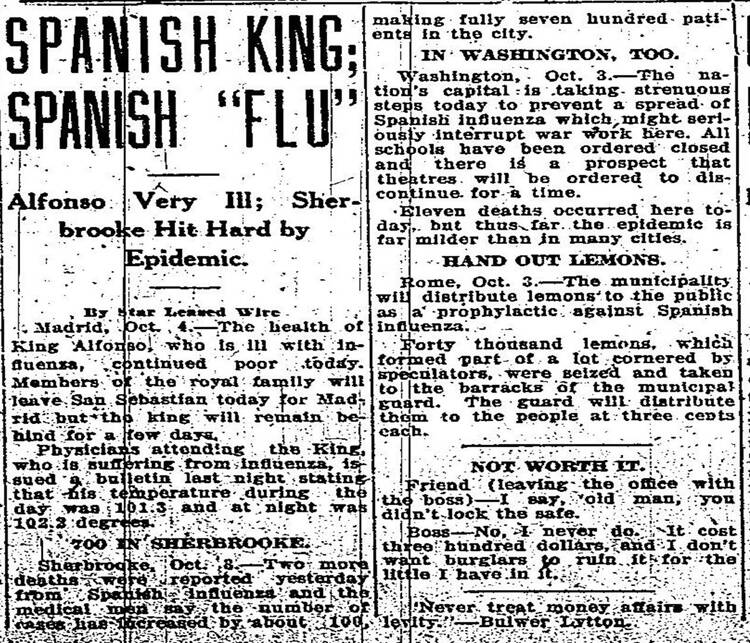
October 16: Many deaths in the province and specifically in Patras where schools are closed.
October 18: The start of the University courses is postponed, the Conservatory closes, the court sessions are interrupted. The epidemic is just around the corner in Athens. The cafes in Omonia Square are closing, provision is being made for the dilution of the customers of the polished shoes and for the owners of the cinemas to allow only half the spectators.
According to the telegrams, there are also cases in Volos, Arta, Tyrnavos and Larissa, with Patras continuing to rise with 47 deaths a day and Ioannina with 40.
October 24: The then Minister of Interior Simos reads: "The cure for the disease has been found. "Dr. Seiler from Vienna managed to reduce mortality from eighty percent to zero by sublime injections."
October 27: Immediate application of injections. The director of Evangelismos tests in 26 sick injections, with excellent results.
Pyrgos, Nafplio, Veria, Kalamos and Chania are added to the lists of cities with the outbreak of the flu.

The victims multiply and the transport of the dead
From mid-October to early November 1918 the flu was at its peak but no casualties were reported.
Characteristic is a rare field report of the time in Vathis square. Six members of a family have all fallen ill and Dr. Kokkakis reports that in popular neighborhoods the flu throws people down as a family and that he uses only sharp suction cups for treatment.
The island of Skyros was one of the areas of Greece where the flu hit hardest. The existing records speak of an almost universal infection of the population with the virus. Of the 3.200 inhabitants of the island at the end of October, 3.000 are ill. People die suddenly where they eat, sit, pray. Mothers, fathers and grandmothers carry the coffins of the children, while the next day they also fall lifeless.
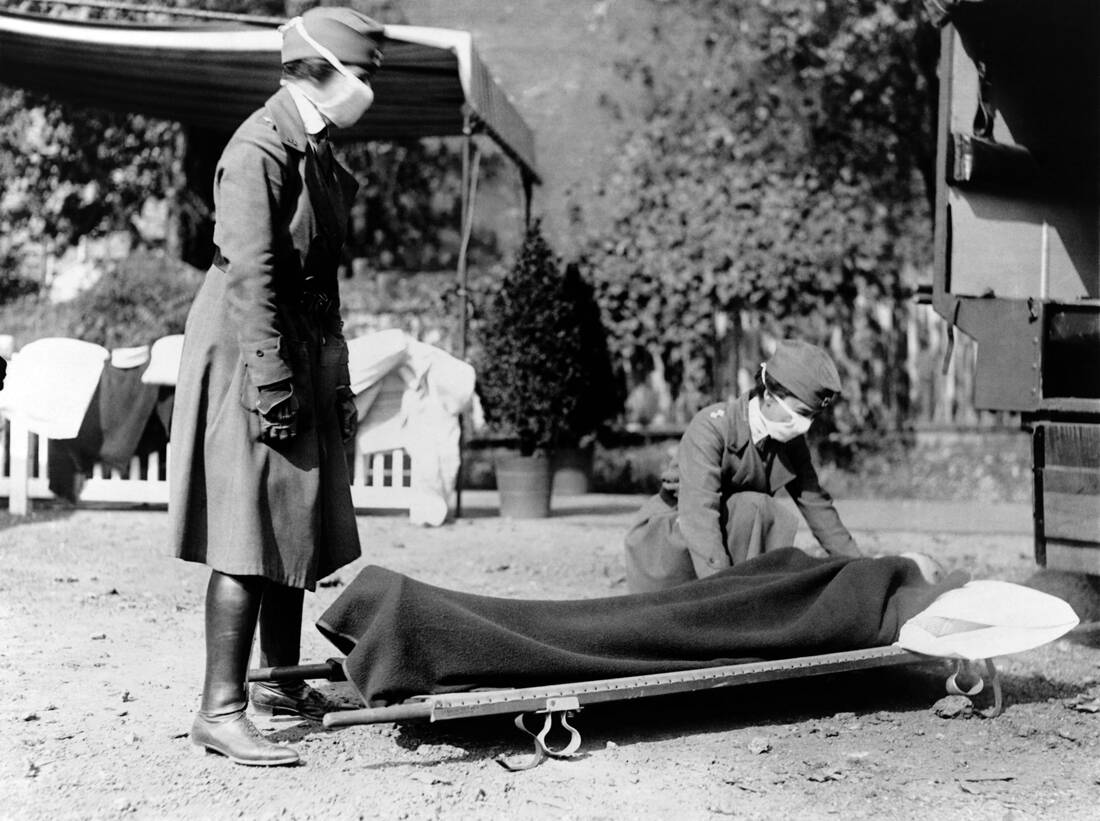
While the dead are multiplying at a rate that societies cannot lift the carrying of the dead is beginning to be the number one issue. Boats, coffins, stairs and doors are recruited. The cemetery is full, the churches are the same. They have no medicine, no food.
The first optimistic telegrams began arriving on November 5th. On November 15, the flu has no cases in Patras, Corfu, has stagnation in Athens and Piraeus, while it is still intense in Eastern Macedonia, Zakynthos, Epirus, Naxos, Arta and Skyros, but without counting so many victims.
The press of the time recorded the recession of the virus with the headline: "The flu is alive".
